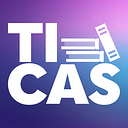What to Know About the #FarmBill
1. What is the #FarmBill?
The Farm Bill is legislation that governs agricultural and food policy. The federal government must reauthorize it every five years.
This significant legislation governs many nutrition programs, including the Supplemental Nutrition Assistance Program (SNAP).
2. How does education access in SNAP affect the economy?
In 2021, over 14 million people on SNAP, who were 18+ had a high school diploma but no college credential.
SNAP policies that restrict education undermine higher education and workforce development.
3. Currently, higher education is not defined as an “Employment and Training Program” under SNAP policies. What does that mean?
SNAP participants are effectively barred from accessing education beyond high school, hindering their employability.
SNAP’s education restrictions undermine federal and state investments in higher education and workforce development, stymying economic growth.
4. How can we ensure SNAP promotes economic growth?
Through the Farm Bill reauthorization, Congress can modernize SNAP policies to include postsecondary programs under the definition of “Employment and Training Programs.”
Congress can count enrollment in a postsecondary program as an exemption that confers eligibility for students enrolled at least half-time.
